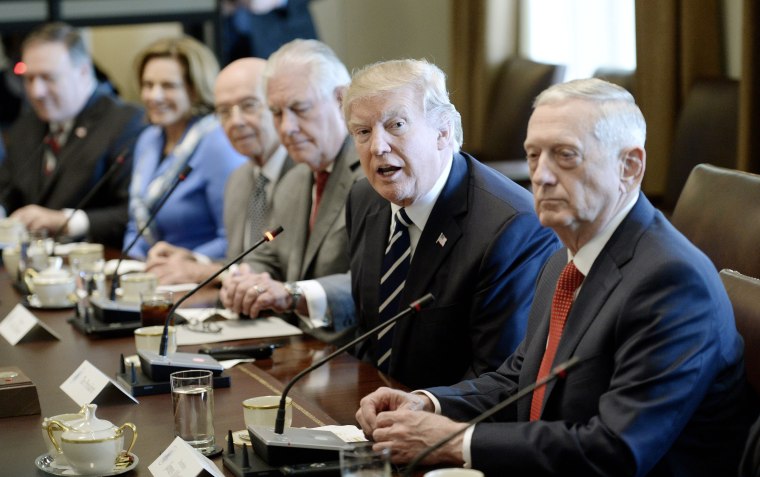Donald Trump spent several years calling for the swift withdrawal of U.S. troops from Afghanistan, ending the longest war in American history. Now he's doing the opposite. There are several interesting reports in major media outlets today explaining how the president's team convinced him, as he put it last night, to abandon his "instincts."
By all accounts, the process wasn't one in which members of Trump's team came up with a series of options, from which the president made his choice. Rather, as is often the case in this White House, officials chose the course they preferred and then began the work of persuading their boss to endorse it.
"It wasn't a debate," a senior White House aide told Politico. "It was an attempt to convince the president."
There's ample evidence that this task wasn't easy, though as became clear last night, Trump's national security team eventually wore him down. The Washington Post's account of how this unfolded -- the president "pinballed between his militaristic and anti-interventionist impulses" -- included an important detail.
President Trump was frustrated and fuming. Again and again, in the windowless Situation Room at the White House, he lashed out at his national security team over the Afghanistan war, and the paucity of appealing options gnawed at him. [...]Trump's private deliberations -- detailed in interviews with more than a dozen senior administration officials and outside allies -- revealed a president unattached to any particular foreign-policy doctrine, but willing to be persuaded as long as he could be seen as a strong and decisive leader.
This sounds familiar, which is part of the problem with Trump's failing presidency.
On practically every issue, the president is "unattached to any particular" policy or substantive preference. Throughout the health care debate, for example, Trump said he simply wanted to sign a piece of legislation, regardless of its contents or outcomes.
What's more, the president clashed bitterly with Australia's Malcolm Turnbull over refugees, not because Trump had any particular substantive concerns, but because, as the American president told his Australian counterpart, "it makes me look so bad."
This is how Trump seems to evaluate every decision of consequence: as an extension of his personal public-relations branding campaign.
And so it comes as no surprise that, as the Washington Post reported, the post-policy president was "willing to be persuaded as long as he could be seen as a strong and decisive leader." Because as far as Trump is concerned, what else matters?
